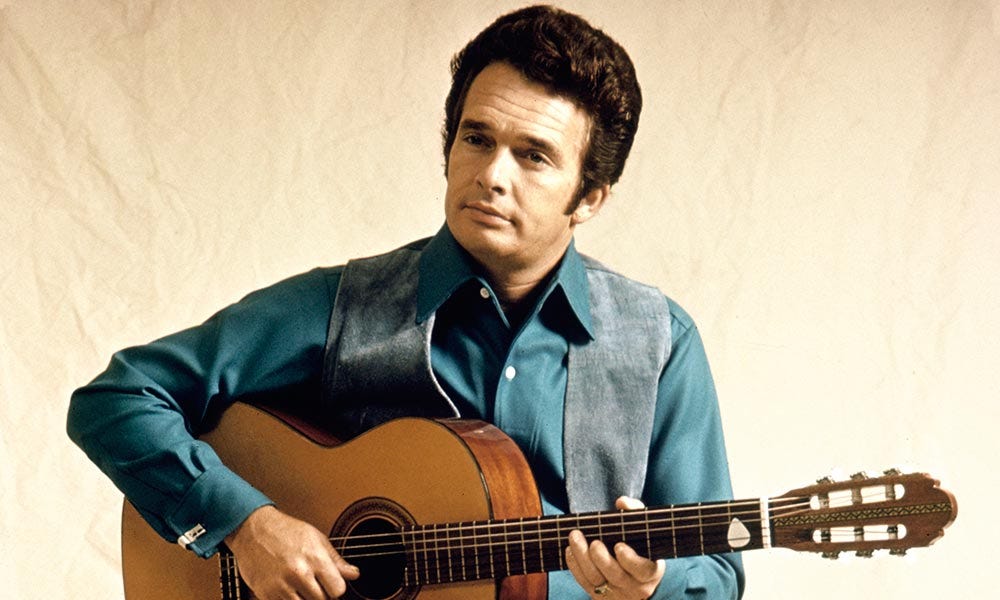Redemption’s Echo: The Soulful Lament of a Wayward Son

In 1968, the mournful strains of Merle Haggard‘s “Mama Tried” resonated through the airwaves, embodying the poignant regret of a man imprisoned by both bars and choices. As part of his album, also titled Mama Tried, this track etched its legacy into the annals of country music history. It became a defining moment for Haggard, peaking at number one on the Billboard Hot Country Singles chart and further cementing his place as one of the genre’s most authentic voices. Yet beyond its commercial success, “Mama Tried” is a deeply personal narrative that echoes with universal themes of familial bonds and personal redemption.
The origins of “Mama Tried” are rooted in Haggard’s own tumultuous life experiences. Raised in a small town in California, Haggard’s childhood was marked by poverty and instability following the death of his father when he was just nine years old. This loss set him on a path fraught with missteps and rebellion, culminating in several incarcerations. By his early twenties, Haggard found himself in San Quentin prison, a crucible from which he would emerge not only as a free man but also as a rejuvenated artist determined to channel his experiences into song.
It is this authenticity—this raw, lived truth—that pulses through every note of “Mama Tried.” The lyrics unfold like a confessional letter penned from behind bars, suffused with a sense of irrevocable regret. Here, Haggard pays homage to the tireless efforts of his mother, who endeavored to steer him away from the path of delinquency. Despite her unwavering love and guidance, he laments, “No one could steer me right but Mama tried.” These words encapsulate an eternal struggle between maternal hope and filial waywardness—a battle that countless listeners have found hauntingly familiar.
Musically, “Mama Tried” is quintessentially country yet uncommonly profound. Its melody carries echoes of traditional folk music while embracing the honky-tonk roots that defined Haggard’s early career. The instrumentation is stripped back but effective: the twang of the guitar underscores the song’s plaintive mood while allowing Haggard’s evocative voice to take center stage. This vocal delivery is nothing short of masterful; it is imbued with an emotional depth that can only come from one who has truly lived what he sings.
Beyond its immediate narrative, “Mama Tried” resonates with broader cultural themes that transcend its initial context. In a time when America grappled with social upheaval and shifting moral landscapes, the song offered a narrative that was both intensely personal and universally relatable. It speaks to anyone who has ever felt trapped by their circumstances or struggled to reconcile their past actions with present consequences.
Today, “Mama Tried” endures as a cornerstone of Merle Haggard’s enduring legacy. It is not merely a song but a testament to resilience—a reminder that even amidst life’s harshest trials, there exists an opportunity for reflection and redemption. Through his haunting lyrics and soulful composition, Haggard bequeaths us an enduring tale of love’s unwavering attempt to guide and save, even when all seems lost.